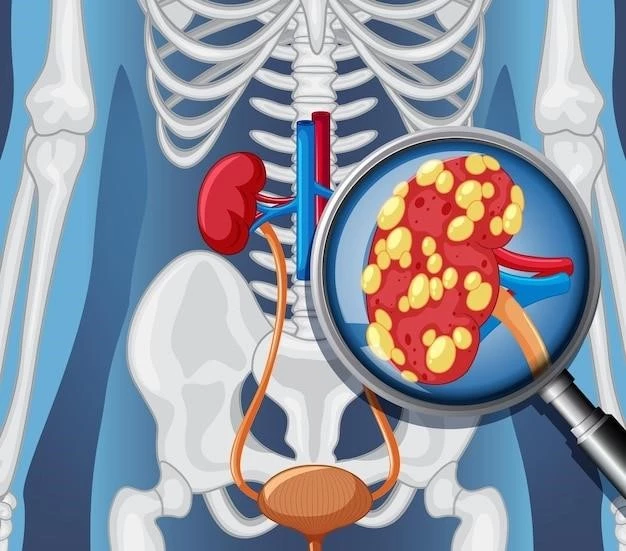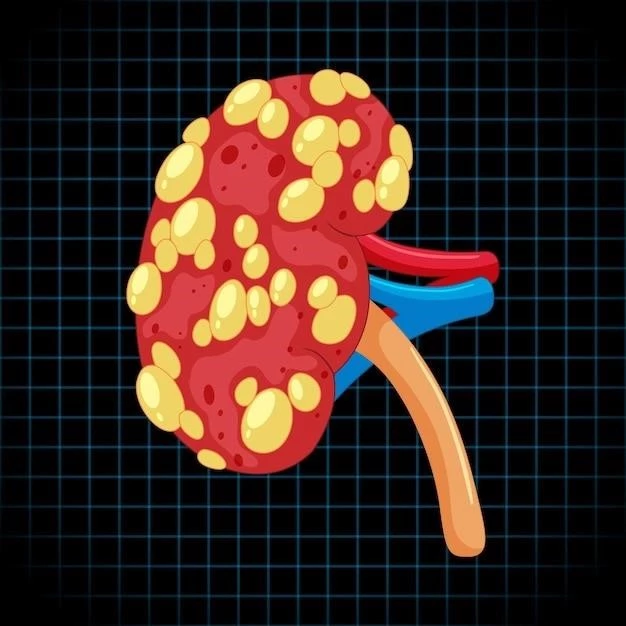Article Plan⁚ Disease ⎻ Neuroma Biliary Tract
Introduction to Neuroma Biliary Tract
Introduction. Neuroma arising in the biliary system is a rare benign lesion, classified into primary and traumatic neuroma. Pathologies such as infection, inflammation, trauma, gallstones, or surgery can lead to traumatic neuroma. These tumors are non-cancerous growth of nerve tissue that can cause bile duct obstruction. Understanding the types and causes of neuromas in the biliary tract is crucial for diagnosis and management.
Understanding Neuroma in the Biliary System
Neuroma in the biliary system is a rare but important condition that can arise from various underlying factors like infection, trauma, or surgery. It is crucial to understand the nature of these tumors and their impact on bile duct function for effective management. Stay informed about the types and causes of neuromas in the biliary tract to facilitate early detection and appropriate treatment.
Types of Neuroma in the Biliary Tract
Neuromas in the biliary tract can be classified into primary and traumatic neuromas. Traumatic neuromas, often arising post-surgery or due to trauma, can cause nerve tissue proliferation leading to potential complications like bile duct obstruction. Understand the distinction between these types for proper diagnosis and targeted treatment strategies.
Causes and Risk Factors

The causes of neuroma in the biliary tract can often be linked to underlying pathologies such as trauma from surgery, infections, or inflammatory processes affecting the biliary system. Understanding the risk factors associated with these conditions, like previous surgical interventions or biliary tract diseases, is essential for early identification and management. Stay informed about the potential triggers and risks that can lead to neuroma development in the biliary system.
Symptoms and Diagnosis of Neuroma Biliary Tract
Neuroma in the biliary tract may present with various symptoms such as bile duct obstruction, persistent pain, and potential complications like obstructive jaundice. Diagnosis involves imaging studies, histological examination, and evaluation of the patient’s clinical history. Early detection is crucial for timely management of neuroma in the biliary system. Consult your healthcare provider if you experience related symptoms for proper diagnosis and treatment.
Common Symptoms
Common symptoms of neuroma in the biliary tract may include bile duct obstruction, persistent pain in the abdomen or right upper quadrant, jaundice, and potential complications like cholangitis. Recognizing these signs early is essential for timely diagnosis and management. If you experience any of these symptoms, seek medical advice promptly for proper evaluation and treatment.
Diagnostic Procedures
Diagnostic procedures for neuroma in the biliary tract typically involve imaging studies such as CT scans, MRIs, and histological examination through biopsy. Additional tests may include blood work and evaluation of the patient’s clinical history to confirm the diagnosis. Early and accurate diagnosis is crucial for initiating appropriate management strategies. Consult with medical professionals for proper diagnostic procedures and interpretation of results.
Treatment Options for Neuroma Biliary Tract
Various treatment options are available for managing neuromas in the biliary tract, including surgical interventions and medications/therapies. The choice of treatment depends on the type and severity of the neuroma. It’s important to consult with healthcare professionals to determine the most suitable approach for addressing the condition effectively. Stay informed about the available treatment options and discuss them with your medical team for personalized care.
Surgical Interventions
Surgical interventions are common treatment approaches for neuromas in the biliary tract, especially traumatic neuromas causing complications like bile duct obstruction. Procedures may involve resection of the affected nerve tissue to alleviate symptoms and restore proper biliary function. It is essential to discuss with healthcare providers to determine the most suitable surgical intervention based on individual circumstances and severity of the condition.
Medications and Therapies
When it comes to neuroma in the biliary tract, medications and therapies play a significant role in managing the condition. These can include pain management medications, targeted therapies, and supportive treatments to alleviate symptoms and improve overall well-being. It is essential to work closely with healthcare providers to determine the most effective medication and therapy options tailored to individual needs. Keep informed about the available treatments and discuss all choices with your medical team for the best outcome.
Prognosis and Complications of Neuroma Biliary Tract
Understanding the prognosis and potential complications of neuroma in the biliary tract is crucial for managing the condition effectively; Prognosis may vary based on factors such as the type of neuroma, timing of diagnosis, and individual health status. Complications can include bile duct obstruction, persistent pain, and jaundice, highlighting the importance of early detection and timely intervention. Consult with healthcare professionals to discuss the prognosis specific to your situation and address any potential complications promptly.
Case Studies and Research on Neuroma Biliary Tract
Research and case studies on neuroma in the biliary tract provide valuable insights into the diagnosis, treatment, and outcomes of this rare condition. Stay informed about the latest findings and ongoing studies to understand the nuances of managing neuroma in the biliary system. Learning from reported cases and ongoing research can help healthcare providers and patients make informed decisions regarding optimal care and treatment approaches.
Reported Cases
Reported cases of traumatic neuroma in the biliary tract have highlighted instances of obstructive jaundice, bile duct obstruction, and complications post-surgery. Understanding these cases can provide insights into the diagnosis, treatment, and outcomes associated with neuroma in the biliary system. Stay informed about reported cases to enhance knowledge and awareness of this rare condition for better patient care.
Ongoing Studies and Findings
Current ongoing studies focus on the diagnostic approaches and treatment outcomes of neuroma in the biliary tract. Researchers are exploring advanced imaging techniques, molecular markers, and innovative therapies to enhance the management of this rare condition; Stay updated on the latest research findings to understand the evolving landscape of neuroma in the biliary system and potential advancements in treatment modalities.
Prevention and Lifestyle Management
While specific preventive measures for neuroma in the biliary tract may not be well-defined, maintaining overall liver and biliary health is essential. Adopting a healthy lifestyle with a balanced diet, regular exercise, and avoiding excessive alcohol consumption can support liver function. If you have a history of biliary issues or surgeries, follow up regularly with your healthcare provider for monitoring and early detection of potential complications.
Support Resources for Individuals with Neuroma Biliary Tract
Accessing support resources is integral for individuals with neuroma in the biliary tract. Patient support groups offer a platform for sharing experiences and receiving emotional support. Additionally, access to specialized care providers knowledgeable about this rare condition can enhance treatment outcomes. Engage with patient support groups and seek specialized care to navigate the challenges associated with neuroma in the biliary system effectively.
Patient Support Groups
Engaging with patient support groups focused on neuroma in the biliary tract can provide valuable emotional and informational support. These groups offer a platform for individuals to connect, share experiences, and access resources specific to this rare condition. Joining a patient support group can offer a sense of community and understanding, making the journey of managing neuroma in the biliary tract less daunting.
Access to Specialized Care
Accessing specialized care providers who have expertise in treating neuroma in the biliary tract is essential for optimal management of this rare condition. Specialized healthcare professionals can offer tailored treatment plans and guidance to individuals dealing with neuroma in the biliary system. Ensure to consult with specialists who understand the complexities of this condition for comprehensive care and improved outcomes.

Conclusion and Future Outlook
In conclusion, navigating neuroma in the biliary tract requires a comprehensive approach involving early detection, tailored treatment strategies, and access to specialized care. As research and case studies continue to enhance our understanding of this rare condition, the future outlook for individuals with neuroma in the biliary system looks promising. By staying informed, engaging with support resources, and collaborating with healthcare providers, individuals can effectively manage and improve their quality of life despite facing this challenging condition.
